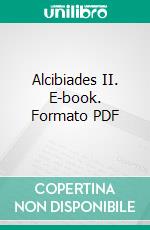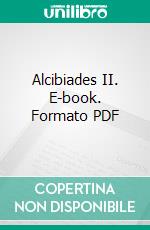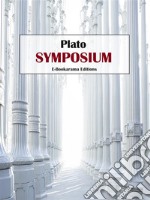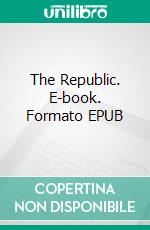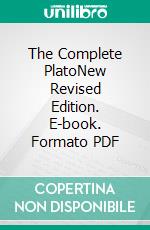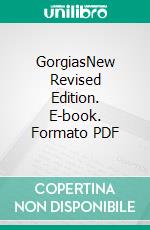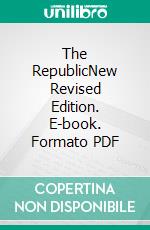Alcibiades II. E-book. Formato PDF - 9788834184295
di Plato
edito da IONLINESHOPPING.COM , 2019
Formato: PDF - Protezione: nessuna
The Second Alcibiades or Alcibiades II is a dialogue traditionally ascribed to Plato. In it, Socrates attempts to persuade Alcibiades that it is unsafe for him to pray to the gods if he does not know whether what he prays for is actually good or bad for him.
There is dispute amongst scholars about the text's authenticity, and it is generally considered apocryphal. The main criticisms of its authenticity revolve around its defective arguments, lack of humor, and style; those who consider it inauthentic date its composition to the 3rd or 2nd centuries BC.
Socrates meets Alcibiades while the second is on his way to pray, and warns him that one must be careful what he prays for, since the gods might actually his wishes. Alcibiades replies that one must be mad to pray for something harmful, but Socrates corrects him by saying that if ignorance was equated to madness, and considering the ignorant are so many, they would be in grave danger with all these lunatics running around (139d). Rather, madness and ignorance are subsets of a larger thing, which is the opposite of wisdom. Like various ailments are all opposites of health without being identical, so the opposites of wisdom are many, madness and ignorance among them, but also a form of "romanticism", megalópsukhos in the original text (140c). Alcibiades stands corrects, and Socrates continues with the main question of whether he, Alcibiades, would ever wish something harmful. As an example, Socrates affirms that he is certain, that had the god granted Alcibiades the rule of Greece, he would have accepted. With his question Socrates could also be playing on Alcibiades' ambitious nature, that was known throughout Greece and was immortalised in Thucydide's history. Alcibiades naturally agrees and Socrates reminds him of how named rulers like Archelaus of Macedon were been murdered or expelled from their cities. So what seems better, Socrates says, is what a certain poem said some time ago: "King Zeus, give unto us what is good, whether we pray or pray not; But what is grievous, even if we pray for it, do thou avert" (143a).
There is dispute amongst scholars about the text's authenticity, and it is generally considered apocryphal. The main criticisms of its authenticity revolve around its defective arguments, lack of humor, and style; those who consider it inauthentic date its composition to the 3rd or 2nd centuries BC.
Socrates meets Alcibiades while the second is on his way to pray, and warns him that one must be careful what he prays for, since the gods might actually his wishes. Alcibiades replies that one must be mad to pray for something harmful, but Socrates corrects him by saying that if ignorance was equated to madness, and considering the ignorant are so many, they would be in grave danger with all these lunatics running around (139d). Rather, madness and ignorance are subsets of a larger thing, which is the opposite of wisdom. Like various ailments are all opposites of health without being identical, so the opposites of wisdom are many, madness and ignorance among them, but also a form of "romanticism", megalópsukhos in the original text (140c). Alcibiades stands corrects, and Socrates continues with the main question of whether he, Alcibiades, would ever wish something harmful. As an example, Socrates affirms that he is certain, that had the god granted Alcibiades the rule of Greece, he would have accepted. With his question Socrates could also be playing on Alcibiades' ambitious nature, that was known throughout Greece and was immortalised in Thucydide's history. Alcibiades naturally agrees and Socrates reminds him of how named rulers like Archelaus of Macedon were been murdered or expelled from their cities. So what seems better, Socrates says, is what a certain poem said some time ago: "King Zeus, give unto us what is good, whether we pray or pray not; But what is grievous, even if we pray for it, do thou avert" (143a).
Ean
9788834184295
Titolo
Alcibiades II. E-book. Formato PDF
Autore
Editore
Data Pubblicazione
2019
Formato
PDF
Protezione
nessuna
Punti Accumulabili
